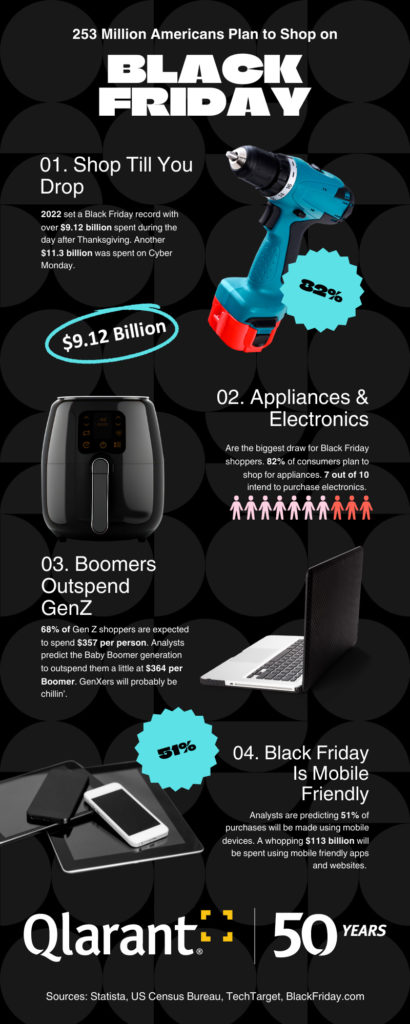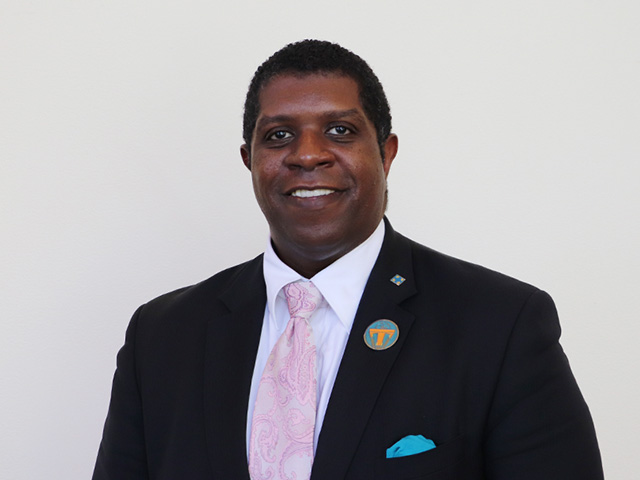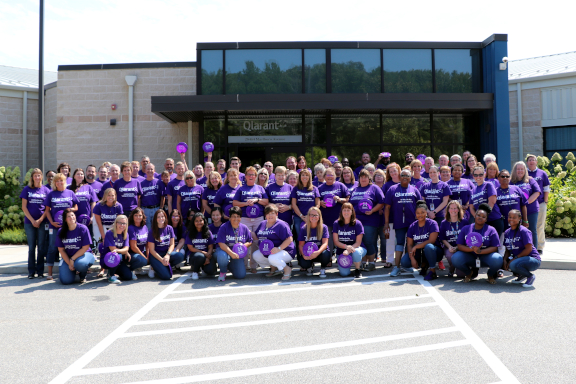Black Friday by the Numbers
The end of the year is near. This time of year is a great time for reflection, to give thanks, and to shop until we drop. After Americans push themselves away from the Thanksgiving table and loosen their belts, they’ll be taxing the highways, byways, and Internet in a bid to get the best deals.
It’s the holiday shopping season, and there’s a good chance you’ll be one of the 253 million Americans waking up early trolling for deals. About 123 million Americans are planning to shop online with the remainder choosing to brave the elements and lines to shop in person. Appliances and electronics are prime products for wheeling and dealing. 82% of Black Friday shoppers plan on buying appliances. Another 73% will be purchasing electronics.
 Black Friday Isn’t What It Used to Be
Black Friday Isn’t What It Used to Be
”Black Friday” wasn’t always a term used to describe the holiday shopping season. The first reference to Black Friday described a financial panic in 1869. After that financial crash, Black Friday was used to describe bad events. The first time Black Friday was used in the modern sense was by the Philadelphia police to describe the influx of shoppers descending on Philly the day after Thanksgiving in the 1950s. By 1961, the term caught on in Philadelphia and ultimately spread throughout the zeitgeist.
Since then, and until 2020, Black Friday was an event shoppers were excited for. Big Box stores and dealers would offer mega deals prompting consumers to wake up early from their turkey comas. Even yours truly fell victim to Black Friday mania. My wife and I woke up at 3 in the morning to wait in line for a $499 flat screen TV at a big box store. There were only 5 of those TVs for that deal in the entire store.
The COVID pandemic changed the game, and online sales topped a mind boggling $9.03 billion. Last year’s record breaking $9.12 billion was then dwarfed by Americans spending another $11.3 billion on Cyber Monday.
Black Friday doesn’t have the same cache it used to simply because retailers have constantly expanded the holiday shopping season. The Black “Friday” shopping season now includes Small Business Saturday and Cyber Monday. And that’s after retailers have extended the Christmas shopping season to Halloween! Retailers compete ferociously for dollars. Many big box stores begin advertising Black Friday deals weeks ahead of Thanksgiving allowing shoppers more choice and time for planning. Since the deal period has extended to Monday, there’s no sense of urgency or rush to get a deal that’s only around for 24 hours.
This year Black Friday is going mobile. Analysts are predicting 51% of purchases to be made on mobile devices. The acceptance and adoption of digital wallets on devices is predicted to boost holiday sales made on devices to $113 billion through the holiday season. And you guessed it, Gen Zers will be leading the shop until you drop splurge. The smart money is predicting 68% of Gen Z shoppers to show out on Black Friday. With the average Gen Zer expected to spend $357 per person. But don’t count out those Boomers. Boomers who actually know how to shop online (my mother still has trouble) are expected to spend $364.
Black Friday Worldwide
Black Friday started as a capitalistic, American holiday. But like many other cultural norms, it’s been exported worldwide. The Welsh call their Black Friday, Silly Spending Friday. It’s called El Buen Fin, or the good weekend, in Mexico. Amazon introduced Black Friday to the French.
I’ve waxed romantically about offering Cyber Monday discounts for RIViR. Picture it, data scientists and analysts waiting in line to get deep discounts on geospatial financial indicators, or super-fast differential privacy routines. I’d send out paper leaflets like the good ole days and offer door busting deals on deep discounted licenses for RIViR’s visualization system.
A technologist can dream, right?
Have a Happy Thanksgiving, and make sure you use your wrist guard as you click through all those exciting Black Friday deals.








